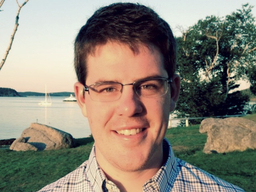CBEE Seminar with Dr. Eric Young, MIT
Location
University Center : 310
Date & Time
January 29, 2016, 10:00 am – 11:00 am
Description
Chemical Biochemical Environmental Engineering Department Presents:
Dr. Eric Young
Friday, January 29
10:00AM
UC 310, UMBC
Biography
Eric Young is a chemical engineer interested in the complexity of biology and the potential that novel cell factories have for industrial production of chemicals. He received undergraduate degrees in Chemical Engineering and Biological Engineering from the University of Maine at Orono. Funded in part by a National Science Foundation Graduate Research Fellowship, he completed his doctoral studies in the laboratory of Dr. Hal Alper at the University of Texas at Austin. While there, he developed strategies for engineering xylose transport in yeast. He is currently a postdoctoral researcher in the laboratory of Dr. Christopher Voigt, and is embedded in the collaborative MIT-Broad Foundry effort. There he works closely with scientists at the Broad Technology Labs and industrial collaborators at DSM Biotechnology Center to speed the design-build-test cycle for yeast pathway engineering.
Abstract
"Advancing Yeast Metabolic Engineering with Protein Engineering and Synthetic Biology"
Yeasts and fungi can be powerful platforms for converting abundant biomass to antibiotics, fuels, and other chemicals. In order to accomplish this, metabolic engineering is used rewire an organism to produce high titers of a desired molecule. In my talk, I will discuss two emerging metabolic engineering tools that rely on protein engineering and synthetic biology.
To carry out a desired reaction, a suitable protein catalyst must be found or engineered. In the first part of my talk, I will discuss how I used genome databases to "prospect" for proteins with putative xylose transport function and strategies for improving transport with directed evolution and rational protein engineering. This work underscores how protein engineering can be implemented to accomplish metabolic engineering goals.
Once a suitable protein is determined, it must be expressed at the optimal level in the host. In the second part of my talk, I will discuss how the synthetic biology approach of defining expression “parts” and characterizing their behavior in different contexts can lead to model-based prediction of expression levels. I will show how this characterized parts collection enables automated, high-throughput construction of metabolic pathway variants and statistical models of pathway expression levels, which iteratively leads to the optimum. This work highlights the utility of synthetic biology in metabolic engineering.
With these general strategies, tools, and models, it is possible to engineer new metabolic function and optimize that function in shorter time and at larger scales than previously possible.
